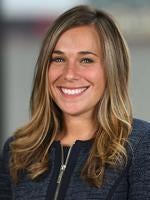COVID-19 Paid Sick Leave
On March 17, 2020, New York Governor Andrew Cuomo announced a three-way agreement with the New York Legislature on a paid sick leave bill for New Yorkers. The proposed bill provides job-protected leave benefits for employees affected by COVID-19.
Effective immediately upon passage (which is expected in the next few days), employees subject to mandatory or precautionary orders of quarantine or isolation issued by the state of New York, the department of health, local board of health, or any governmental entity duly authorized to issue such order due to COVID-19, will be entitled to paid sick leave as follows:
-
Employers with 10 or fewer employees (as of Jan. 1, 2020) and a net income of less than $1 million shall provide unpaid sick leave until the termination of any quarantine or isolation, and guarantee employees access to Paid Family Leave and disability benefits (short-term disability) for the period of quarantine including wage replacement for their salaries up to $150,000.
-
Employers with 11-99 employees (as of Jan. 1, 2020) and employers with 10 or fewer employees (as of Jan. 1, 2020) and a net income greater than $1 million shall provide at least 5 days paid sick leave, and then unpaid sick leave until the termination of any quarantine or isolation. Further, employers must guarantee their workers access to Paid Family Leave and disability benefits (short-term disability) for the period of quarantine including wage replacement for their salaries up to $150,000.
-
Employers with 100 or more employees (as of Jan. 1, 2020), as well as public employers (regardless of the number of employees), shall provide at least 14 days of paid sick leave during any order of quarantine or isolation.
With the exception of employees subject to quarantine or isolation as a result of non-business travel to a country identified as level 2 or 3 risk by the CDC, any provided paid sick leave under the bill is in addition to an employee’s accrued sick leave provided by the employer’s policy. The bill also specifies that should the federal government provide sick leave and/or other benefits to employees in response to COVID-19, the leave provided under this bill shall not be in addition to those benefits, but rather will offset the difference of any benefits offered by the federal government.
Additionally, employees are not eligible to take sick leave if they are deemed asymptomatic or have not yet been diagnosed with a medical condition and are physically able to work remotely or through other means while under a mandatory quarantine or isolation.
Note that the paid sick leave requirements above do not currently apply to private employers that voluntarily closed business operations for COVID-19 related safety and health concerns. However, this may change if New York implements a Shelter-In-Place Order similar to counties in California.
Statutory Sick Leave Beyond COVID-19
In addition to providing paid sick leave to address the needs of employees affected by COVID-19, the proposed legislation also amends New York’s Labor Law to provide sick leave for all employees as follows:
-
Employers with 4 or fewer employees and a net income of less than $1 million must provide up to 5 days of unpaid sick leave per year;
-
Employers with 4 or fewer employees and a net income greater than $1 million and employers with 5-99 employees must provide up to 5 days of paid sick leave per year; and
-
Employers with 100 or more employees must provide up to 7 days of paid sick leave per year.
Based on the bill, beginning January 1, 2021, employers must provide an hour of sick leave for every 30 hours worked, and accrued, unused sick time carries over to the subsequent year. As with other sick leave, leave can be used for absences due to: (1) mental or physical illness, injury or health condition of the employee or a family member, (2) diagnosis, care or treatment of a mental or physical illness, injury or health condition of, or for preventative care, for the employee or a family member, or (3) themselves or a family member being a victim of domestic or sexual violence, stalking, or human trafficking.
Employers remain subject to local sick leave ordinances that meet or exceed the requirements of the State’s new sick leave bill. This portion of the bill will go into effect 180 days after enactment.





 />i
/>i

